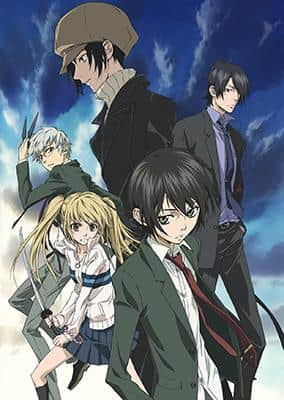Bonobono: A fascinating exploration of the world of healing and profound themes

The appeal and reviews of Bonobono■ Public MediaTV anime series ■ Original Mediacomics ■ Broadcast period April 20, 1995 - March 28, 1996 ■Broadcasting stationTV Tokyo ■Frequencies15 min ■ Number of EpisodesEpisode 48 ■Original StoryMikio Igarashi ■ DirectorHitoshi Namba ■ ProductionProduced by TV Tokyo, Amuse Produced by Group TAC ■Works©Igarashi Mikio/Takeshobo, TV Tokyo, B2 Production ■ StoryThis is a story that depicts the events that occur between Bonobono and his friends. The story often progresses with Bonobono's questions as the starting point. To resolve Bonobono's questions, the chipmunks and raccoons work together to search for the answers together with Bonobono. They arrive at the answers by listening to advice from various animals on the island, but the answers are often not clear-cut. ■ExplanationAn animation based on Mikio Igarashi's manga "Bonobono". It was broadcast together with the anime "Bit the Cupid" as part of the TV Tokyo series "Anime Can", so each episode is 15 minutes long. The anime version tones down the philosophical elements found in the original work, and is made as a comedy anime. It was made into a movie in 1993 and 2002. ■Cast・Bonobono / Kumiko Watanabe ・Chipmunk / Konami Yoshida ・Raccoon / Keiji Fujiwara ■ Main staff・Original story by Igarashi Mikio (serialized in Takeshobo's "Monthly Manga Life" and "Monthly Manga Club") ■ Main Characters The main character of Bonobono Otter. He is absent-minded, but has a keen eye and questions many things. ■Subtitle Episode 1: Let's play with Bonobono (1995/04/20) ■ Theme songs and music・ED1 ■ Evaluation and recommendation"Bonobono" is an anime series that aired on TV Tokyo from 1995 to 1996, and is based on the manga of the same name by Igarashi Mikio. The series depicts the daily lives of the sea otter Bonobono and his friends, and is loved by a wide range of people from children to adults. Below, we will explain in detail the appeal and reviews of the series, as well as the recommended points. ■The appeal of the workThe greatest appeal of "Bonobono" is its unique worldview and the individuality of its characters. Bonobono is a spacey sea otter with a keen eye for observation who questions a variety of things. His questions prompt his friends, Chipmunk-kun and Raccoon-kun, to work together to find the answer, which is heartwarming to watch. In particular, the process of deriving the answer while listening to the advice of the animals on the island often deeply moves viewers. The anime version also tones down the philosophical elements of the original work and is made as a comedy anime, so children can also enjoy it. Each episode is short at 15 minutes, but the story unfolds well within that time, allowing viewers to enjoy both laughs and emotion. For example, "Episode 1: Let's Play with Bonobono" begins with a scene of Bonobono playing with his friends, depicting the importance of friendship. "Episode 18: Raccoon in Love" depicts Raccoon's feelings of love, making it an episode that resonates with viewers. ■Evaluation"Bonobono" has been highly praised since it was first broadcast, especially for its unique worldview and the charm of its characters. The anime version has been accepted by a wider audience by sublimating the philosophical elements of the original into a comedy anime. The efforts of the staff, including director Hitoshi Nanba, series composer Tetsuo Yasumi, and composer Ittoku Miyake, are also contributing to the high quality of the work. The acting of the cast was also highly praised, especially Kumiko Watanabe as Bonobono, Konami Yoshida as Chipmunk-kun, and Keiji Fujiwara as Raccoon-kun, who succeeded in bringing out the individuality of their characters. The ending themes "Shortcut Wants You" and "LOVE, TWO LOVE" were also highly praised for the vocal ability of Kyoko Suga and the quality of the lyrics and composition. ■ Recommendation pointsThe reasons why we recommend "Bonobono" are as follows: 1. **Enjoyable for both children and adults**: The anime version is made as a gag anime, so children can enjoy it. On the other hand, it also retains the philosophical elements of the original work, so adults can often find it thought-provoking. 2. **Character Personalities**: The characters, including Bonobono, are all very unique and loved by viewers. In particular, Bonobono's absent-minded personality, Chipmunk-kun's unique way of speaking, and Raccoon-kun's caring nature are all very appealing. 3. **Story Development**: Each episode is short, only 15 minutes, but the story unfolds well within that time, and you can enjoy both laughter and emotion. In particular, the process in which Bonobono's friends work together to find the answer to his question often deeply moves the viewers. 4. **The power of the staff**: The quality of the work is enhanced by the efforts of the staff, including director Hitoshi Nanba, series composer Tetsuo Yasumi, and composer Ittoku Miyake. In particular, the music is an important element in enhancing the atmosphere of the work. 5. **Cast performances**: Kumiko Watanabe as Bonobono, Konami Yoshida as Chipmunk-kun, and Keiji Fujiwara as Raccoon-kun bring out the individuality of their characters. The ending themes "Shortcut Wants to Take a Turn" and "LOVE, TWO LOVE" are also highly praised for the vocal ability of Kyoko Suga and the quality of the lyrics and composition. ■ Summary"Bonobono" is a comedy anime that can be enjoyed by both children and adults, but it also retains the philosophical elements of the original work. It has been highly praised for various elements, including the personalities of the characters, the development of the story, the skill of the staff, and the acting of the cast. In particular, the process in which Bonobono's friends work together to find the answer to a question that arises is often deeply moving to viewers. We hope you will give it a watch and experience the unique world view and charm of the characters. |
>>: BiT the CUPID Review: Where will Cupid's arrow head?
Recommend
The Return of the Condor Heroes: Who will play Yang Guo and Xiao Long Nu?
Recently, the second chapter of the "Jin Yon...
Bunshunsha publishes a list of the best animations in history as determined by the audience. Amuro says he has appeared in 7
Japan's famous weekly Bunshunsha recently pub...
OL Makeover Course: A thorough analysis of real workplace experiences and growth stories
"OL Makeover Course": A realistic portr...
Game of Thrones spin-off to focus on Targaryen family history 300 years ago
According to multiple foreign media reports, HBO ...
Zhang Ruoyun, the lead actor of "Celebrating More Than Years", responded to the controversy over on-demand charging: The money has not gone into my pocket
Previously, when the new advanced on-demand mode ...
Dark Gathering review: A fusion of horror and emotion
"Dark Gathering": A world where fear an...
"Dungeons & Dragons: Rogue Glory" has a great collection of weird monsters! The adventure of breaking through levels and killing monsters is about to begin
The fantasy action-adventure blockbuster "Du...
Karasu Tengu Kabuto's Appeal and Evaluation: In-Depth Review
Karasu Tengu Kabuto - The Legendary Warrior and H...
The classic girl game "Mahjong Soul" has been confirmed to be produced as a TV animation and is scheduled to be broadcast in April
The official announcement of the two-dimensional ...
"Gladiator 2" released an official trailer and the ancient Roman Colosseum is back
"Gladiator 2" released an official trai...
The plot of the movie "Sonic the Hedgehog 2" was leaked through the copyright registration website. Tails and Knuckles will appear
"Sonic the Hedgehog" is a live-action f...
The animated version of "Shenmue" released a trailer with a total of 13 episodes and will be broadcast next year
Online anime content provider Crunchyroll today (...
The appeal and reviews of Glamorous Heroes: What are the points you shouldn't miss?
Glamorous Heroes - A fascinating world of animate...
Detailed review and rating of Zenryoku Usagi Season 2
The appeal and evaluation of "Zenryoku Usagi...
A racing motorcycle story! The new hit show "Sunny Days!" is set to premiere on April 10
The new original animation "Sunny Days!"...









